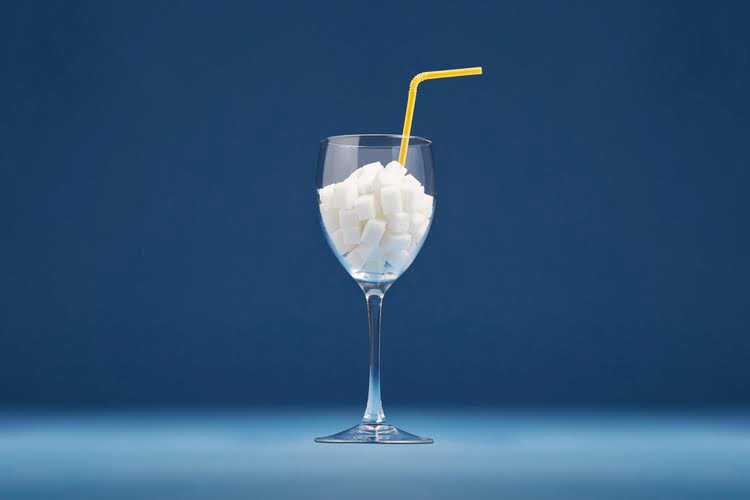If you or a loved one is struggling with alcohol addiction, contact us to learn more and get started with alcohol addiction treatment. Your doctor can determine if tapering alcohol is safe for your unique situation and help you create a plan to quit drinking alcohol. By looking at your medical history and alcohol intake, your doctor can determine whether you need to taper in a medical detox facility or can safely detox at home. This may work for many people, but in practice each individual will respond best to a different pace, and each doctor will have their own recommendations. The risk of tapering too slowly is that you won’t stick with it, while the risk of tapering too fast is severe withdrawal.
- And, if your dependence on alcohol is mostly physical, you may even be pretty much done drinking at that point.
- The main reason for this is alcohol withdrawal, which can be life-threatening and dangerous in itself.
- Creating a daily routine that supports sobriety can significantly enhance one’s quality of life.
- After two weeks, continue to listen to your body, adding more alcohol-free days and seeking support as needed.
- Alcohol addiction is a progressive disease that can cause you to become dependent on alcohol.
What are the common symptoms of alcohol withdrawal?
Making a schedule to slowly reduce your alcohol intake is a safe way to taper off the substance. This will ensure that you are not quitting cold turkey which could result in severe and debilitating withdrawal symptoms or even death. Depending on how much alcohol you’ve been consuming, it can take days or over a week to gradually reduce your dose safely and get off alcohol. When coming off drugs or alcohol tapering is the best way to prevent severe withdrawal symptoms. Tapering is the act of gradually reducing alcohol use until completely abstinent.

Types of Librium Tapering Methods
Professionals can provide personalized treatment plans tailored to the individual’s needs, enhancing the overall success of the weaning process. If you’re a heavy drinker, you may need to wean off alcohol to let your body adjust. If you’re experiencing severe symptoms of alcohol withdrawal, be sure to talk to a healthcare provider. can you wean off alcohol This is the most commonly accepted method of stopping alcohol by the medical community. However, there are risks to this method, and someone stopping alcohol should receive medical monitoring and care if they are likely to experience moderate to severe withdrawal symptoms.
What Are the Most Common Addictive Substances and Their Effects?
Quitting alcohol abruptly, especially after heavy and chronic use, is dangerous. The main reason for this is alcohol withdrawal, which can be life-threatening and dangerous in itself. Therefore, tapering off alcohol safely from your system is the first step to alcohol use. When it is done under safe and controlled medical conditions (medically supervised detoxification), it is safer and easier. If you choose to taper off alcohol, it is crucial to create a plan with medical guidance. Remember, it’s not just about drinking less; it’s also about taking care of your overall health.
Another significant challenge is the psychological dependence on alcohol. Implementing healthy coping mechanisms is essential to replace the role alcohol plays in an individual’s life. This could include engaging in new hobbies, exercising, or seeking support from friends, family, or support groups. Additionally, understanding and avoiding personal triggers can help prevent relapse. Symptoms of alcohol dependence include cravings, increased tolerance, and withdrawal symptoms when alcohol consumption is reduced or stopped. According to the National Institute on Alcohol Abuse and Alcoholism (NIAAA), approximately 28.6 million adults had AUD in 2021, underscoring its widespread prevalence.
- A substitution taper refers to switching strong liquor for an alternative that contains less alcohol, like beer.
- If you’ve been drinking for a long time, tapering off can cause withdrawal symptoms.
- If you’ve decided to quit drinking, and tapering seems like the right approach, we’ve got you covered.
- Finally, just because you’ve gotten past the withdrawal phase doesn’t mean you won’t continue to face psychological aspects of addiction—including alcohol cravings and drinking triggers.
- People looking to quit drinking may consider either tapering or going cold turkey, meaning they abruptly stop all alcohol consumption without weaning.
Peer Support in Recovery and Its Impact on Sobriety Maintenance
Cutting back or completely stopping alcohol consumption is challenging, even if you are not at the point of addiction. The support of medical professionals and psychologists can help you in this process. Creating a daily routine that supports sobriety can significantly enhance one’s quality of life. This might involve setting regular meal times, incorporating exercise, scheduling time for relaxation, and participating in AA meetings or therapy sessions.
- Naltrexone is an opioid antagonist that does not cause physical dependence.
- This is because Delirium tremens is caused by hyperactivity in the nervous system, which is now without the depressant effects of alcohol and is instead going into overdrive.
- Quitting alcohol abruptly (cold turkey) can be dangerous, especially for individuals with a history of heavy or prolonged alcohol consumption.
Here’s a specific plan to guide you through the initial stages of your journey, helping you take control of your relationship with alcohol. Researched, fact-checked and transparent articles and guides that offer addiction and mental health insight from experts and treatment professionals. Recovery.com combines independent research with expert guidance on addiction and mental health treatment. Our mission is to help everyone find the best path to recovery through the most comprehensive, helpful network of treatment providers worldwide. By acknowledging the need for change and understanding the benefits of tapering off, individuals can take the first steps toward achieving a healthier and alcohol-free lifestyle. Before you begin an alcohol taper, a little preparation can go a long way, especially when it involves handling your triggers and tracking how much you drink.

Even with a gradual reduction in consumption, the body has already adapted, and withdrawal is likely to occur to some extent. Going “cold turkey” means abruptly stopping drinking entirely, leading to uncomfortable withdrawal marijuana addiction effects. The intensity of the withdrawal symptoms depends on the severity of the alcoholism. In sum, the path to weaning off alcohol and embracing a life of sobriety is multifaceted, requiring patience, courage, and the willingness to seek and accept help. Through each step, the AA Meetings Directory remains a steadfast resource and ally, offering guidance, support, and a sense of community for those determined to lead a sober life. Naltrexone can be a valuable part of an alcohol or opioid recovery program.
This means that there is little data about the best way to taper your drinking. However, some groups have published tapering examples to assist those trying to quit drinking. Direct tapering is not recommended for liquor drinkers as it is challenging to measure amounts and can result in binge drinking. Additionally, mixed drinks may contain sugar or other additives that could exacerbate withdrawal symptoms and should be avoided during the taper. You may receive medication to ease withdrawal symptoms—such as anti-diarrheal medicines or over-the-counter pain relievers. A doctor may prescribe a benzodiazepine as part of the tapering process.
During the process of weaning off alcohol, it’s important to be aware of and manage alcohol withdrawal symptoms effectively. Seeking assistance from healthcare professionals, such as doctors or addiction specialists, can provide valuable support during the weaning process. They can also monitor progress and adjust the treatment plan as needed. Professional assistance may involve a gradual reduction in alcohol consumption, known as tapering off. This approach allows the body to adjust slowly and minimize withdrawal symptoms.
The consequences of quitting alcohol cold turkey can be serious and lead to alcohol withdrawal syndrome, which can be fatal in severe cases. Adjusting the tapering schedule to the individual’s needs is also crucial. If severe withdrawal symptoms are experienced, the plan may need to be modified to ensure safety and comfort.
